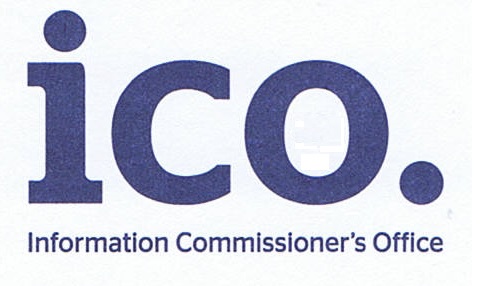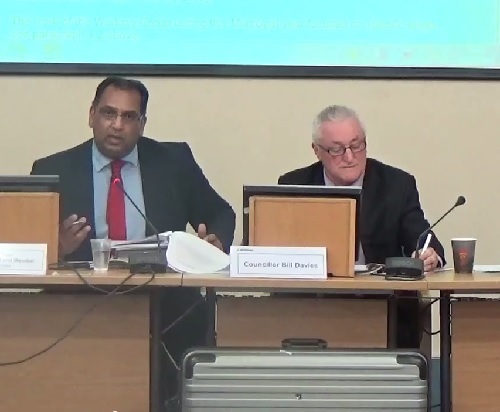What connects "persons interested", Tharmathevy Thanabalasingam and Liverpool City Council?
As regular readers of this blog will know, I exercised my Audit Commission Act 1998, s.15(1) right to inspect invoices and contracts at Merseytravel (now part of the Liverpool City Region Combined Authority), Merseyside Fire and Rescue Authority, Merseyside Waste Disposal Authority (who go by the public name of Merseyside Recycling & Waste Authority) and Wirral Council for the 2014/15 financial year.
This ties in with a right under Audit Commission Act 1998, s.15(2) as a local government elector can then ask the auditor questions.
It’s well established that "persons interested" in Audit Commission Act 1998, s.15(1) means local government electors for the public body concerned.
The problem however came with my request to Liverpool City Council, as I’m not a local government elector in the Liverpool City Council area. Case law has determined that “interested person” (a term sadly not defined in the legislation itself) is a wider group than just local government electors.
R (HTV Ltd) v Bristol City Council [2004] 1 WLR 2717 is an interesting case that as far as I know isn’t available online so I looked it up in the university law library. I’ll refer to R (HTV Ltd) v Bristol City Council [2004] 1 WLR 2717 [24], [25], [39], [49] and [50] as it goes into the legislative history of who is considered an “interested person”.
24. The concept of “persons interested” has received very little consideration by the courts. In Marginson v Tildsley (1963) 67 JP 226 the appellant was a member of the Fleetwood urban authority for 20 years before he became bankrupt and was disqualified from the council. He sought the right to inspect the accounts under the Public Health Act 1875. He preferred an information against the clerk of the council alleging that the clerk had wrongly refused him access to the accounts. The justices dismissed the information but their decision was overturned on appeal. Lord Alvertstone CJ held that he was a person interested because although no longer a member of the council, the possibility that his estate could be liable for any surcharge rendered him a person interested.
25. In the later case of R v Bedwellty Urban District Council, Ex p Price [1934] 1 KB 333 the court held that a person interested was entitled to inspect the accounts by an agent, who in that case was his accountant. It was argued that the accountant was a person interested in his own right, but the point did not have to be determined and Avory J expressly left it open.
39. He also referred me to a passage in Jones, Local Government Audit Law, 2nd ed (1985), ch 8. The last edition of this valuable book was sadly in 1985. But in a discussion on the meaning of the concept of a “person interested”, the author expressed the view that the right was attached to any person who had a financial interest in the accounts, as well as somebody with a legal interest, such as a local government elector who has the legal right of objection.
49. I think it is somewhat artificial to say that non-domestic ratepayers do not contribute to the local authority’s budget. Although their contributions are channelled through, and will be subject to, redistribution by central government – the income will be received indirectly by the authority as a grant from central government – nevertheless I think this gives them a sufficient interest in inspecting the accounts and satisfying themselves as far as they can that they are in order. In my view, this is reinforced by the fact that they had the right for their representatives to be consulted on expenditure decisions.
50. I consider that these factors together give them a real and close interest in the council’s activities sufficient to confer these rights upon them. I would, moreover, be reluctant to think that this right, which undoubtedly existed until the Local Government Finance Act 1988, had been removed as a consequence of the restructuring of local government finances in that year. It follows that in my view the claimant is a "person interested" within the section."
So from the above I can gather that the concept of "interested person" means:
- local government electors (which for Liverpool City Council at the last election I estimate at around ~320,000 local government electors)
- former politicians of that public body (although as I think the ability to surcharge councillors has been repealed this may not apply in most circumstances)
- those assisting local government electors such as accountants
- as the R (HTV Ltd) v Bristol City Council [2004] 1 WLR 2717 case above established a company or business based in the area covered by the public body that pays business rates (or by its more formal term of non-domestic rates)
However according to Liverpool City Council my request was refused because as far as they see it, I don’t fall into one of the above categories.
I do however have a legal interest in 22 of the invoices I requested as I made a FOI request for them on the 14th May 2015. Liverpool City Council refused to supply a copy of the invoices and also refused at internal review. I exercised my right under the Freedom of Information Act 2000, s.50 to complain to the regulator (the Information Commissioner’s Office about this) on the 31st July 2015 and a decision by ICO is awaited.
Some ICO decision notices take a much wider view as to the definition of “interested person”. This decision notice (FS50582149) at part of paragraph 62 states (ACA 1998 refers to the Audit Commission Act 1998):
Keen followers of local government will know that the Audit Commission doesn’t exist any more, however if the Liverpool City Council shared the view of the now defunct Audit Commission that an "interested person" as was someone "in receipt of services from the Council" then I certainly fall into that category!
I regularly walk on Liverpool’s roads (maintained by Liverpool City Council), have made at least one Freedom of Information Act request to Liverpool City Council and have filmed public meetings of Liverpool City Council starting with this one of the Constitutional Issues Committee on the 8th September 2014 last year (there have been a number I’ve filmed since the Openness of Local Government Bodies Regulations 2014 forced Liverpool City Council to remove the anti-filming public meetings section in their constitution).
However, this is going off the point a little and the next point will sound like an arcane legal point. I can’t request permission from a High Court Judge for judicial review of Liverpool City Council’s decision to refuse inspection/copies of the invoices under the audit legislation that relate to the FOI request. Why is that? That’s because it would be refused due to the existing right of appeal to ICO (Information Commissioner’s Office).
I would guess that if permission for judicial review was applied for, a High Court Judge would refuse permission to the part of the request to Liverpool City Council under the audit legislation that relates to the 22 invoices that pertain to the earlier FOI request on those grounds. This is because part 5 of the Pre-Application Protocol for Judicial Review makes it clear that "Judicial review should only be used where no adequate alternative remedy, such as a right of appeal, is available."
It is far better to establish the principle of whether the invoices are able to requested through FOI requests through an ICO decision notice. However before Liverpool City Council did a U-turn and realised I wasn’t a local government elector I did get copies of 7 invoices for its legal costs (the first of which is at the end of this article).
There will be a delay getting editorial approval with the other six as Liverpool City Council have done an extremely bad job at redacting some of the information. One of the invoices relates to a Family Court matter that it probably be unlawful for me to publish in its present form as the names of the parents and a child are clearly visible. Those more well versed in data protection law could perhaps leave a well-informed comment on why giving out such detail to a member of the public ain’t a good idea.
As usual the thumbnails are linked to higher resolution images for each page.
I would make an educated guess that the invoice below relates to a decision of Liverpool City Council’s Licensing and Gambling Sub-Committee on the 30th July 2014 to revoke the licence for Kenny Food & Wine at 237 Kensington, Liverpool 7.
There’s a right of appeal of decisions of such committees (a Licensing and Gambling Sub-Committee is composed of councillors and meets in public) to the local magistrate court. The premises licence holder’s name is Tharmathevy Thanabalasingam (which is published in the report to that committee).
The Liverpool City Council solicitor this invoice went to is Mr. P Merriman. He’s the licensing, gaming and betting solicitor at Liverpool City Council.
Mr David Hercock of Six Pump Court is a barrister. The invoice is for £2,400 (£2000 + VAT).


If you click on any of the buttons below, you’ll be doing me a favour by sharing this article with other people.

